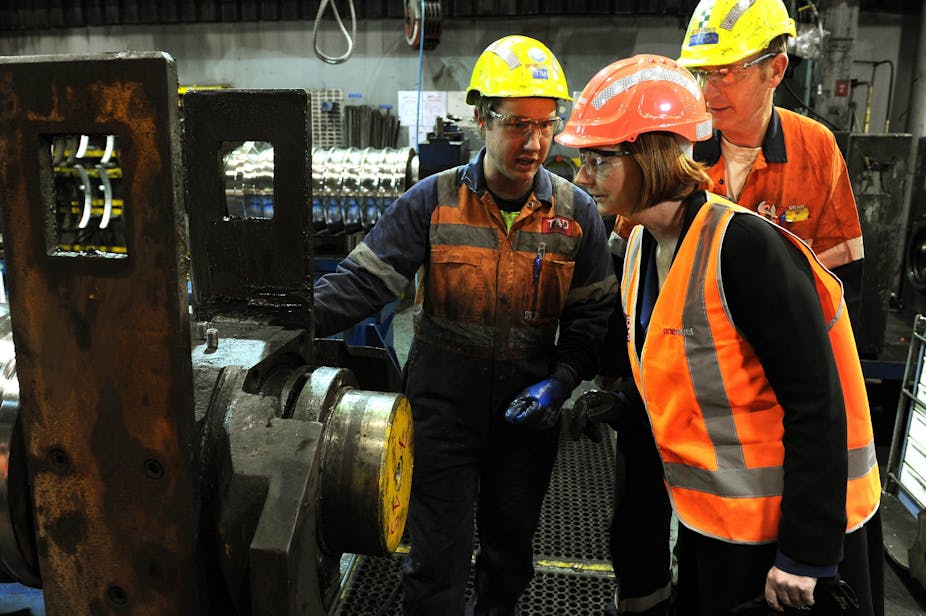Australia’s lagging manufacturing sector faced thorough scrutiny last week, amid calls for more government support for local industries following BlueScope Steel’s $1 billion loss and its decision to sack 1000 workers.
Manufacturing has suffered greatly from the rising value of the dollar and increased competition for labour, both of which are a direct result of the mining boom. One solution to this imbalance continues to be overlooked – a minerals export tax.
A minerals export tax would efficiently raise revenue from our natural resources while protecting Australian manufacturing from the adverse effects of the resources boom.
US economist Ronald Findlay recently outlined how such a tax could mitigate the adverse effects of a temporarily high dollar on our export-oriented manufacturing sector. The Columbia University Professor was speaking at Melbourne Universities annual Max Corden Lecture on international economics.
The logic for such a proposal is fairly straightforward. The tax would push up the price of minerals exported from Australia by increasing the costs incurred by mining companies.
Consequently, the tax would increase world prices for the commodities we have in abundance while leaving Australian domestic prices constant.
Local manufacturers that use these inputs (notably steel producers like BlueScope and OneSteel) would then become more internationally competitive.
In theory, Findlay’s proposal reverses some of the temporary negative impact of the resources boom.
In addition to bringing the economy’s two speeds closer together, an export tax also presents a practical and elegant solution to a major policy challenge that haunts the Gillard Government: raising government revenue from our non-renewable resources.
An export tax on resources makes sense as a revenue source, because it allows Australia to exploit its market power. We have the world’s largest reserves of brown coal, lead, mineral sands, nickel, silver, uranium and zinc, and the second largest reserves of bauxite, copper, gold and iron ore.
The Organisation of Petroleum Exporting Countries (OPEC), the global oil cartel, provides an example of how market power in resources is exploited in practice. OPEC has reduced the global oil supply and thereby increased the world price of oil for decades in order to exploit its members’ collective market power.
By the time those countries’ resources have been exhausted, they will have sold them more slowly and at higher prices than if they hadn’t exploited their market power.
BHP Billiton and Rio Tinto may have recognised this logic in 2010 with their proposed merger. Unfortunately for their respective shareholders, competition authorities in Europe and Asia deemed the proposal anti-competitive precisely because of their combined market power and the merger never went ahead.
An export tax could be combined easily with the Government’s watered-down resources rent tax. Unlike the BHP-Rio Tinto merger, however, the extra profits from wielding market power would accrue to Australian citizens.
Imposing an export tax on minerals is not without practical and political complications.
First, and perhaps most significantly, invoking an export tax within the current multilateral trade arrangements is legally problematic.
However, legal hurdles within the World Trade Organisation should not be the basis for dismissing such a proposal and there are countless global examples of similar measures.
Second, if the resources boom and the consequent high Australian dollar are not temporary phenomena, an argument for supporting Australian manufacturing can be made, but is less compelling.
The economic argument for exploiting our market power remains, however.
Benefitting from our huge endowments of exhaustible natural resources and protecting our manufacturing base during the mineral boom are both economically laudable policy objectives.
Professor Findlay’s proposal of a mineral export tax could help achieve both goals in a politically palatable way.

